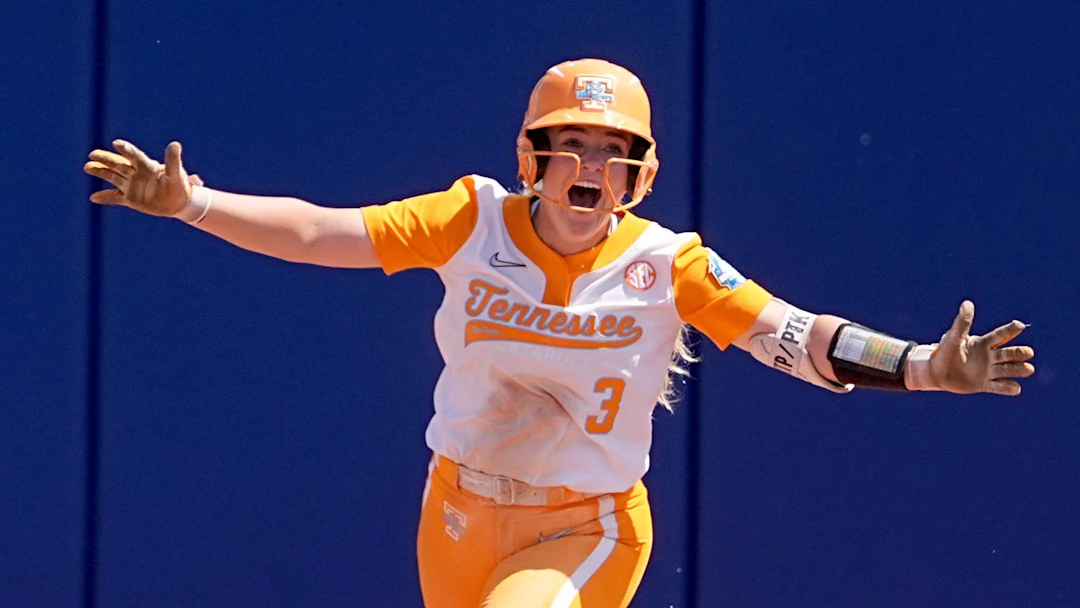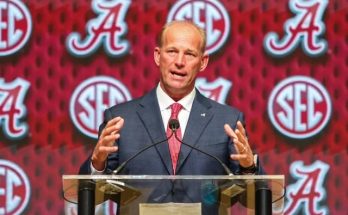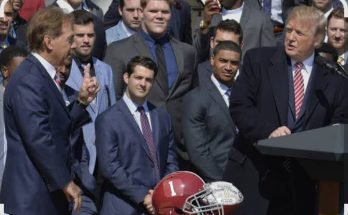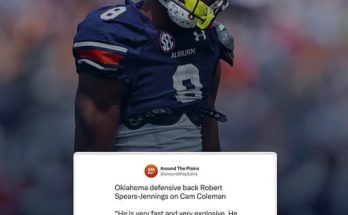In the opening round of the Women’s College World Series, with the game knotted late and tension mounting, Tennessee’s senior catcher Riley West stepped into the batter’s box. On a full count with two outs and the go-ahead run at second base, West took a pitch that clearly tailed low and inside—by every visual angle, a ball. But the umpire punched her out with a dramatic strike call, ending the inning and crushing a vital Lady Vols rally.
Instantly, social media erupted. National analysts called it “egregious,” and ESPN’s Jessica Mendoza described it as “a moment that undermines the credibility of postseason officiating.” Tennessee head coach Karen Weekly tried to keep her cool, but her eyes told the story: stunned disbelief at a moment stolen from her team.
But this Lady Vols team doesn’t crumble. They don’t wallow in what could’ve been. Instead, they rose—determined, composed, and fueled by what they knew they were capable of.
And in the very next game, the Tennessee Lady Volunteers didn’t just win. They dominated. With a 7-1 victory over perennial powerhouse UCLA, Tennessee didn’t just answer the worst call in Women’s College World Series history—they reasserted themselves as legitimate contenders for the national title.
A Bad Call, A Fire Lit
Tennessee came into the 2025 Women’s College World Series as the No. 5 national seed, with high expectations and one of the most balanced rosters in the field. Anchored by their elite pitching staff led by Payton Gottshall and ace reliever Karlyn Pickens, and boasting a lineup filled with power and speed, they were built for Omaha.
But Game 1 tested their resolve.
The strike-three call on Riley West wasn’t just controversial—it was a momentum-killer. The Lady Vols were rallying against Oklahoma State, threatening to take the lead in a deadlocked defensive battle. The blown call ended the inning and shifted all momentum to the Cowgirls, who eventually eked out a 3-2 win.
“Bad calls happen,” senior shortstop Zaida Puni said afterward, “but that one stung. We knew we had to come back and make a statement.”
Facing UCLA: A Statement Game
UCLA entered their matchup with Tennessee looking to bounce back after their own surprising loss to Alabama. The Bruins, with their championship pedigree and deep lineup, were no easy rebound target. But Tennessee had something bigger in mind—a message.
From the first pitch, it was clear the Lady Vols were dialed in.
Karlyn Pickens started in the circle, delivering heat with precise command. The sophomore phenom mowed down the first six batters she faced, showing off the elite movement on her riseball and hitting 70 mph consistently. On the offensive side, the Vols wasted no time.
In the top of the third inning, McKenna Gibson opened the scoring with a solo blast deep into left center—a no-doubter that ignited the Tennessee dugout. Gibson turned to her teammates and pounded her chest at third base, clearly still carrying the fire from the previous night’s controversy.
“Sometimes you just have to let your bat do the talking,” she said after the game.
But Tennessee wasn’t done. Back-to-back singles from Katie Taylor and Destiny Rodriguez set the stage for Zaida Puni, who laced a double off the wall to bring in two more runs. Just like that, Tennessee led 3-0.
Lockdown Defense and Electric Arms
As the game wore on, Tennessee’s defense proved why it’s one of the most respected in the nation. West, despite being the focal point of the controversy the day before, bounced back by throwing out two would-be base stealers and expertly handling Pickens’ arsenal.
Pickens went five innings, striking out eight and allowing only two hits. Her command was sharp, and UCLA’s sluggers couldn’t figure her out. Gottshall then entered in the sixth to shut the door, earning the rare six-out save.
“Karlyn gave us everything,” Coach Weekly said. “She was lights out. That’s what we needed to bounce back, and that’s who we are.”
Meanwhile, the bats stayed hot. Tennessee tacked on four more runs in the sixth inning, including an RBI single from Kiki Milloy, who shook off a hitless Game 1 and returned to form. The final score: 7-1, Tennessee.
It wasn’t just a win. It was a rebuke to the injustice of the night before.
A United Team, A Bigger Goal
Perhaps the most striking thing about Tennessee’s response wasn’t the scoreline or even the individual performances—it was the unity. This is a team that refused to fracture, even in the face of gut-punch adversity. The veterans led, the underclassmen followed, and the coaching staff kept the ship steady.
“This group,” said Coach Weekly, “they have heart. They’ve believed in each other from day one. And when you get hit with something like that [bad call], it can break you. But they refused to be broken.”
The chemistry was evident postgame. The players rallied around West, who had remained gracious despite the blown call. “It’s not about one pitch,” she told reporters. “It’s about the next one. I’m just proud of how we answered back.”
Bigger Picture: Officiating Scrutiny and NCAA Response
While Tennessee’s victory was an emphatic answer, the broader softball community isn’t letting the officiating controversy go so easily.
Former Olympian Natasha Watley tweeted:
“That strike three call on Riley West? One of the worst I’ve ever seen. Unacceptable at this level.”
Calls have been mounting for the NCAA to expand the use of instant replay in the WCWS. Currently, balls and strikes remain judgment calls not subject to review—a rule many feel is outdated, especially with high-definition replay capabilities available in every stadium.
“We’re talking about student-athletes who work their whole lives for this moment,” said Mendoza. “They deserve better.”
The NCAA issued a brief statement acknowledging “concern from fans and media” and promised to “review all tournament procedures in the offseason.”
Onward to Elimination Play and Redemption
With their win over UCLA, Tennessee advanced to the elimination bracket semifinal, where they’ll face the winner of Florida State and Oklahoma State—a rematch potentially brewing if the Cowgirls survive.
For the Lady Vols, revenge isn’t necessarily the mission. Redemption is.
“We’re not focused on payback,” said West. “We’re focused on being the best version of ourselves. One game at a time.”
Still, there’s no denying the added motivation. In the wake of a historic bad call, Tennessee didn’t collapse. They surged. They played like a team with something to prove.
A Championship-Minded Core
The core of this Tennessee team—Milloy, West, Puni, Gibson, and Pickens—is championship-caliber. With a blend of power, speed, pitching dominance, and emotional resilience, they’re built to go the distance. After the emotional rollercoaster of the opening round, they now appear more dangerous than ever.
“We can play with anyone in this field,” said Coach Weekly. “Now we just have to keep showing up.”
They’ve certainly earned the nation’s attention. If Tennessee keeps this fire alive, they just might earn something even bigger: the program’s first NCAA softball national title.



